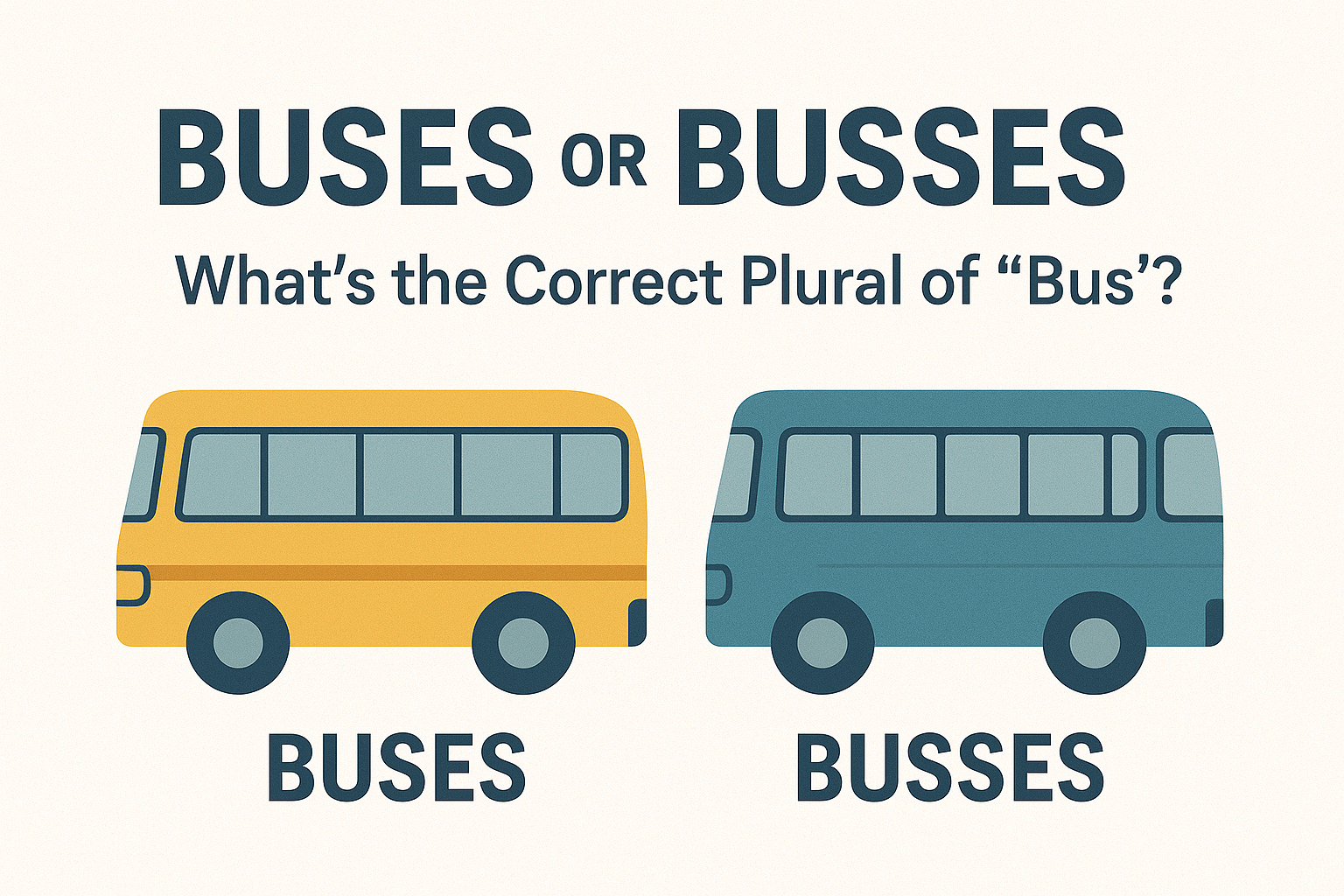If you’ve ever paused mid-sentence wondering whether to write buses or busses, you’re not alone. This small spelling choice has tripped up students, professionals, and even seasoned writers. Let’s make it crystal clear so you never second-guess yourself again.
The Quick Answer
The correct plural of bus is buses.
That’s the spelling used in modern English for everything from public transportation to a computing term “bus” in technology.
Busses still exists, but it’s rare—and when you do see it, it’s usually:
- In older or historical texts.
- As the plural of buss, an archaic term for “kiss.”
Why People Get Confused
The mix-up isn’t random—it comes from a few sources:
- History – When bus replaced the older word omnibus in the 1800s, both spellings—buses and busses—were used.
- Pronunciation – Some thought “busses” matched how the word sounds better, while “buses” might be read as “booses.”
- Old dictionaries – Early style guides listed both forms, and older books kept “busses” alive long after it faded from everyday use.
When “Busses” Isn’t Wrong
While buses is the modern standard, busses can still appear in certain situations:
- Outdated usage – Some older British and American publications used “busses.”
- Poetry or literature – Authors sometimes use it for style or rhythm.
- Different meaning entirely – When buss means “kiss,” its plural is busses.
Example:
- The fans blew busses to the singer as he left the stage. (meaning kisses)
The Rule That Decides It
English pluralization isn’t always logical, but here the rule is straightforward.
Nouns ending in -s, -ss, -sh, -ch, or -x form their plural by adding -es.
Examples:
- class → classes
- pass → passes
- gas → gases
- bus → buses
This is known as the add “-es” rule for plurals—and “buses” follows it perfectly.
More Than Just Public Transportation
The word bus has a few meanings:
- Vehicles – City buses, school buses, tour buses.
- Computing – A data bus carries information between computer components.
- Electrical systems – An electrical bus or bus bar distributes power.
In every case, the plural is still buses.
From Omnibus to Bus
| Word | Origin | Notes |
|---|---|---|
| Omnibus | Latin omnibus (“for all”) | Came from French voiture omnibus, meaning “carriage for all,” in the 1820s. |
| Bus | Shortened from omnibus | First used around 1832. |
| Buses | Regular plural form with “-es” | Standard spelling since the mid-1900s. |
Choosing the Right Word for Your Context
- Formal writing – Always use buses.
- Informal writing – Buses is still safest unless you’re making a playful reference.
- Technical writing – Whether it’s computing or transportation, stick with buses.
Examples in Sentences
Correct and modern:
- The city ordered 20 new electric buses for public transportation.
- Multiple buses connect the processor to memory in a computer.
Archaic or poetic:
- She gave him two quick busses on the cheek. (meaning kisses)
Quick Reference
| Word | Meaning | Modern Usage |
|---|---|---|
| buses | Plural of bus (vehicle, computing, electrical) | Standard, always correct |
| busses | Outdated plural of bus; plural of “buss” (kiss) | Rare, historical, poetic |
Final Takeaway
If you want to write clearly and correctly, go with buses. It’s the form recognized by modern dictionaries, style guides, and readers around the world.
Use busses only if you’re quoting historical text or intentionally using the old-fashioned word for “kisses.”
